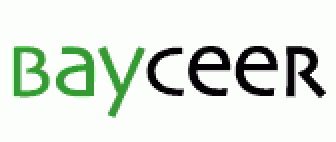Vortragsreihe Ökologie und Umweltforschung WS 2015/16
Prof. Dr. Alexandra-Maria Klein
Naturschutz und Landschaftsökologie, Albert-Ludwigs-Universität Freiburg (Homepage)
Freitag, 27.11.2015 14:15-15:45, H10, NW I
Functional diversity, complementarity and trait identity in pollination studies
Pollination of wild and cultivated plants is today frequently discussed as being an important ecosystem service with direct human benefits while being sensitive to land use intensification at habitat to landscape scales. To compensate for shortages of free and diverse pollination services by wild pollinators and to maximize crop yield, honey bee hives, consisting of a single bee species, are moved from one to the next cultivated crop in different regions of the world.
In my talk I will show how different pollinator functional groups are filling different spatial and environmental niches leading to high and stable pollination services in California almond production under changing environmental conditions. I will further show that trait matching between crop flowers and pollinating insect is most important to predict pollination effectiveness and that flies are playing and important role to secure crop pollination services across different crop systems and regions of the world. As flower-visiting and pollinating insects need flower resources to persist in diverse communities in agricultural landscapes, I will end my talk to discuss recent findings identifying which flower traits seem to be most predictive to attract high pollinator diversity.
My talk will cover case studies and global meta-analyses in basic and applied pollination ecology and biodiversity research, but I will try my best to make results understandable for a broader audience.
Weitere Informationen:
Das BayCEER-Kolloquium dient als interdisziplinäre Plattform für Studierende, Wissenschaftler*innen und Interessierte: während der Vorlesungszeit geben Gäste und Mitglieder des BayCEER Einblicke in ihre Forschung, die im Hörsaal und in lockerer Atmosphäre beim Postkolloquiums diskutiert werden.
- Programm Kolloquium Sommer 2025 (PDF)
- Kolloquiums-Newsletter für Interessierte
- Hinweise für Vortragende
- Hinweise für Einladende (PDF)
- Terminplanung kommende Semester und Vortragsarchiv
Das BayCEER-Kolloquium dient als interdisziplinäre Plattform für Studierende, Wissenschaftler*innen und Interessierte: während der Vorlesungszeit geben Gäste und Mitglieder des BayCEER Einblicke in ihre Forschung, die im Hörsaal und in lockerer Atmosphäre beim Postkolloquiums diskutiert werden.
- Programm Kolloquium Sommer 2025 (PDF)
- Kolloquiums-Newsletter für Interessierte
- Hinweise für Vortragende
- Hinweise für Einladende (PDF)
- Terminplanung kommende Semester und Vortragsarchiv

